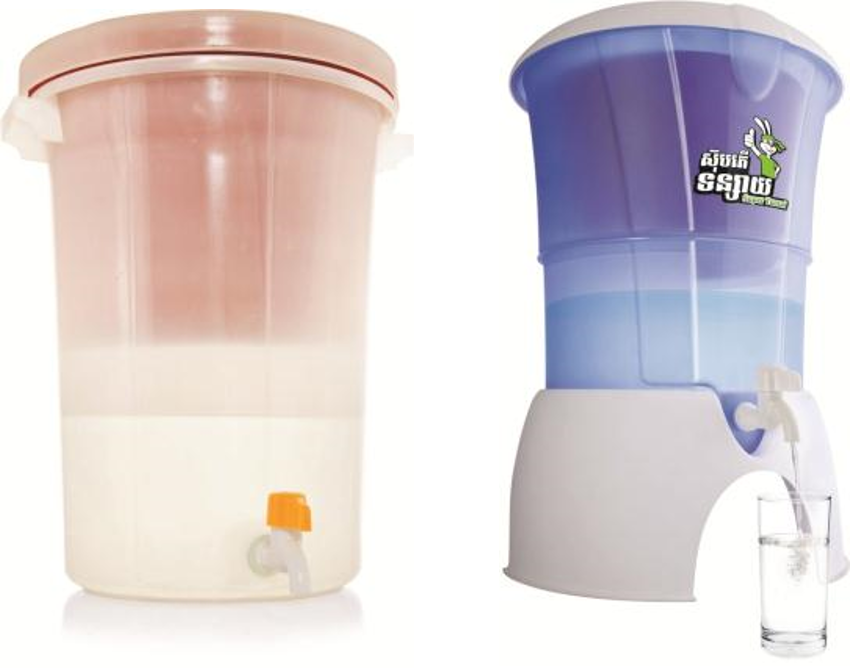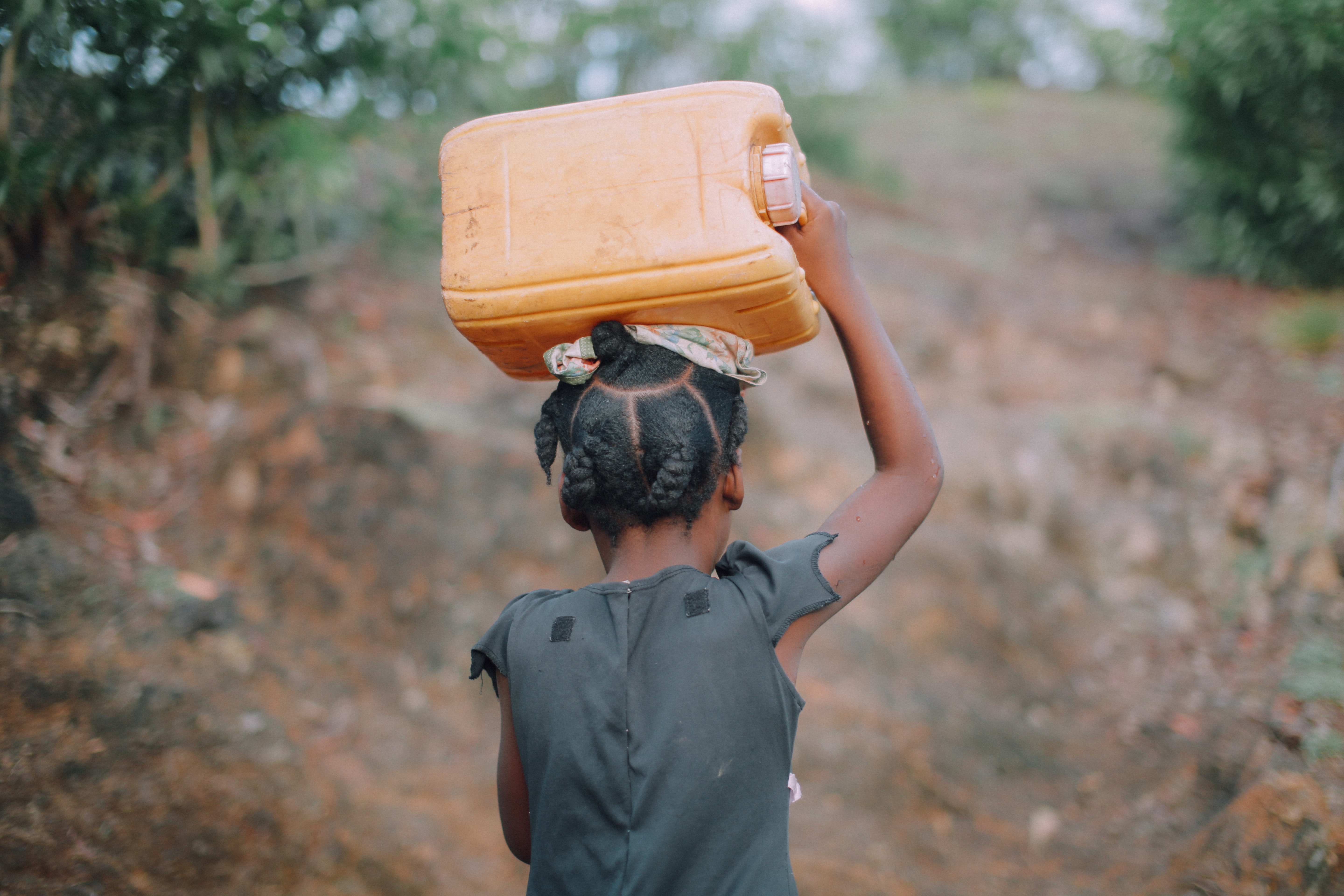Executive Summary
This case study supports and illustrates the theoretic factsheet "Value capture" with practical insights.
Hydrologic & its super Tunsai filter
This factsheet presents how value capture can be reached through aspiration, by the example of Hydrologic introducing the Super Tunsai filter in Cambodia.
iDE is a global effort that spans offices in 14 countries, encompassing 4 social enterprises, employing nearly 1,000 people directly, and indirectly enabling many more through a market-based approach in agriculture, water, sanitation, and hygiene, and finance. In 2001 iDE has started a safe water initiative together with 2 other NGOs in rural Cambodia. After a year-long filter-effectiveness study among 1,000 households the production of ceramic water filters with the initial support of Potters for Peace started. In 2002 iDE entered the market with its locally produced Tunsai ceramic filter (see Figure below), priced at USD 18, targeting customers earning below USD 1/day. During this early project stage, the locally trained ceramic filter producers had the capacity of producing 300 ceramic pots per month at the iDE factory. In the first year the filters were sold to NGOs only. Due to social marketing activities and conviction of people to treat their water, the Tunsai performed well in the market and customers were highly satisfied with the product. Through a local retailer network and direct sales to local NGOs the dissemination of the HWTS was further strengthened from 2003 onwards. Due to this success, iDE decided to establish a social enterprise to manufacture and disseminate the ceramic water filters – the hour of birth of Hydrologic in 2010.

Hydrologic had become a prominent ceramic water filter producer in the Cambodian market. With time however the company noticed that consumers would stop using their filters (costing around USD 18) when they became dysfunctional. Consumers did not feel the need for repairing the product, as it was not perceived as greatly aspirational on one hand (as it has been distributed through local NGOs for free or at a very low price – people didn’t see a need in repairing the filter as it didn’t reflect a real value to them) and on the other they were not aware where to purchase spare parts respectively. To solve these issues Hydrologic introduced a 2-year warranty scheme. Each product comes with a warranty card, indicating purchase date to replace eventually broken parts within 2 years of purchase (for more information see tool on after-sales). To counteract the fact of value perception Hydrologic introduced the Super Tunsai filter in 2011. The superior water filter initially aiming at a different customer segment targeting to those earning between USD 1-5/day reflects aspiration and shall create a desire to purchase it. The market retail price has also been increased to USD 36 in order to capture more value within the company and to allow high enough margins for the last mile distribution. By finding means of instalment-based payments, the enterprise managed to reduce the high-upfront costs, thereby making a case: customers are willing to pay for quality and good maintenance services. Interesting is that the sales of the Super Tunsai increased steadily and not only customers with a bit higher income are willing to purchase but also families with lower incomes as it reflects aspiration and a status symbol. The effect of capturing more value within the company led Hydrologic with the combination of selling carbon credits to break even in 2012.
Lessons learnt from Hydrologic
- Creating an aspirational HWTS product increases the probability of customers’ want to buy as it reflects status and convenience. This fact implies also a higher willingness to pay that allows the company to capture more value.
- An important factor in selling HWTS to the BoP is also reflected in the convenience of instalment-based sales that allow customers.
- Healthy margins allowed the firm to cover the operational costs over time and expand throughout the country.
Recommendations for replicating what worked for Hydrologic
- Reflect on your product offering in order to identify opportunities for improvement to accordingly come up with a more aspirational and/or additional service or another product for different or your current customer segment.
- Capturing more value goes along with innovation and thus also investment is needed. Analyse customer behaviour and value perception to identify potential demand first before investing in value capturing methods.
- Having identified and realised a new product or service eventually asks to set an appropriate price. It is highly recommended to run sales pilots in order to identify the optimal price in the market.
Going to Scale with Safe Water: Analyzing the Business Model of Hydrologic Social Enterprise in Cambodia
The thesis focuses on various aspects of Hydrologic’s innovative business model and the different elements and difficulties in relation to Cambodia’s water sector. The author identifies strategies to scale up the company in another country and provides helpful, praxis-oriented insights into the development, the needs, the challenges and potentials of the company in the scaling process.
KOHLER, S. (2016): Going to Scale with Safe Water: Analyzing the Business Model of Hydrologic Social Enterprise in Cambodia. St.Gallen: University of St.Gallen URL [Accessed: 18.04.2018] PDFAbout Potters for Peace
About iDE
iDE was established in 1982 as an NGO, with the idea to create income and livelihood opportunities for poor, rural households. Today iDE is a global effort that spans offices in 14 countries, encompassing 4 social enterprises, employing nearly 1,000 people directly, and indirectly enabling many more through our market-based approaches in agriculture; water, sanitation, and hygiene; and finance.
IDE GLOBAL (2018): About iDE. URL [Accessed: 28.03.2018]Spring Health - What We Do
Spring Health is a water kiosk enterprise active in rural Odisha, India. At the doorstep via home delivery and at pick up points people purchase safe water in jerry cans. For more information please visit the homepage.
SPRING HEALTH (2017): Spring Health - What We Do. URL [Accessed: 10.04.2018]

